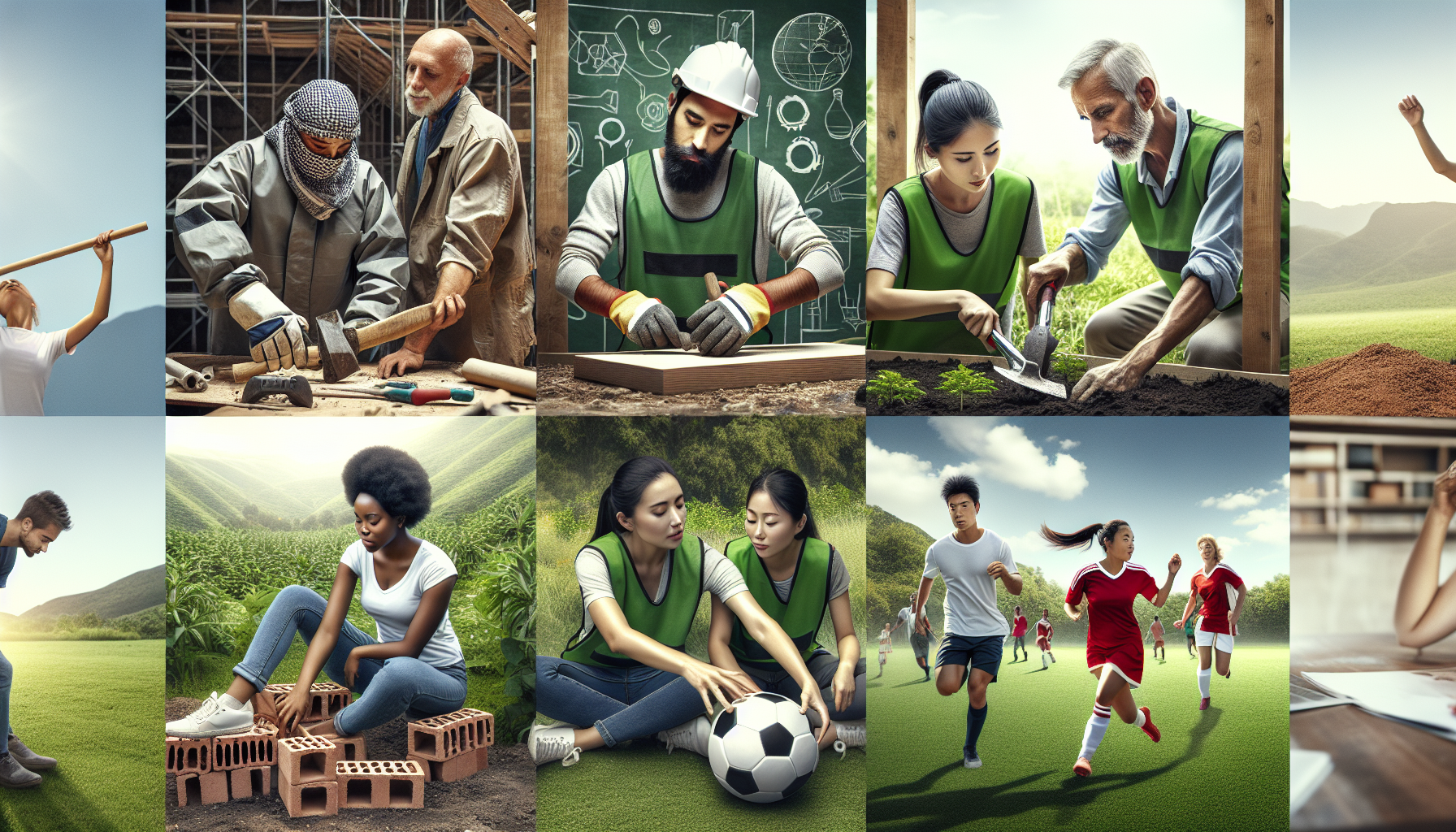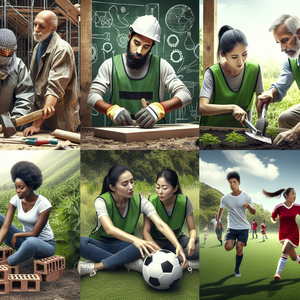Beyond the Podium: The Impact of U.S. Olympic Medalists on Society and Culture

One of the most immediate impacts of U.S. Olympic medalists lies in their ability to inspire young athletes. Icons like Michael Phelps, Gabby Douglas, and Serena Williams have transcended their sports to become symbols of dedication, hard work, and the pursuit of excellence. Their stories often serve as motivational tales, encouraging aspiring athletes to believe in their potential and strive for greatness. Take Gabby Douglas, for example. After winning gold in gymnastics at the 2012 London Olympics, she became a powerful role model for young girls, particularly those from minority backgrounds. Her success not only encouraged increased participation in gymnastics but also underscored the importance of representation in sports. Initiatives like “Girls on the Run” and programs by USA Gymnastics have reported increased participation rates in girls’ sports, a trend that can be attributed to Douglas's influence. By sharing her journey of perseverance and triumph over adversity, she has inspired countless young girls to pursue their dreams, regardless of the obstacles they may face.
Advocating for Change
Beyond inspiring youth, many U.S. Olympic medalists have harnessed their fame to advocate for social change. The 1968 Olympics are particularly memorable for the iconic protest by Tommie Smith and John Carlos, who raised their fists in a Black Power salute during the medal ceremony. This act of defiance not only brought attention to racial injustices but also set a powerful precedent for future athletes to use their platforms for activism. In contemporary society, athletes like Colin Kaepernick and Megan Rapinoe continue this legacy by addressing critical issues such as racial inequality and gender pay disparity. Rapinoe, an Olympic gold medalist in soccer, has been particularly vocal about advocating for equal pay for female athletes. Her efforts have sparked nationwide conversations about gender equity in sports and have mobilized support for systemic change. These athletes illustrate that the Olympic podium is not just a place for celebration; it is also a powerful platform for raising awareness and advocating for social justice.
Cultural Icons and Media Influence
U.S. Olympic medalists often transcend their sports to become cultural icons. Their stories, personalities, and successes are celebrated across various media platforms, allowing them to connect with fans on a personal level. The rise of documentaries, social media, and reality TV has helped humanize these sports figures, showcasing their lives beyond the competition. For instance, the acclaimed documentary "The Last Dance," which chronicles Michael Jordan's journey with the Chicago Bulls, highlights not only his athletic prowess but also his influence on culture, fashion, and business. Similarly, Olympic medalists actively engage with fans through social media, sharing insights into their training regimens, personal struggles, and victories. This connection fosters a sense of community and encourages discussions around values such as hard work, resilience, and social responsibility, reinforcing the notion that athletes can be influential leaders both on and off the field.
The impact of U.S. Olympic medalists extends far beyond the world of sports, influencing culture and society in profound ways. Through their inspirational journeys, advocacy for social change, and cultural significance, these athletes continue to shape the American narrative. As we look forward to future Olympic Games, it is essential to recognize that the influence of these medalists transcends their athletic feats. They remind us that their legacies are interwoven with the fabric of society, inspiring generations to come. The Olympic podium is indeed a powerful place, serving as a launchpad for change and a beacon of hope for many, proving that the true spirit of the Olympics lies not just in competition, but in the courage to inspire and advocate for a better world.
Sports Marketing Manager
Responsibilities
Develop and execute marketing strategies to promote Olympic athletes and events, focusing on brand partnerships and sponsorship opportunities.
Collaborate with athletes to create compelling content for social media and digital platforms, enhancing their personal brands.
Required Skills
Strong understanding of sports marketing trends
Knowledge of digital marketing tools
Excellent communication skills
Common Employers
Sports marketing agencies
Athletic brands like Nike and Adidas
Event management companies
Athlete Relations Coordinator
Responsibilities
Manage relationships between athletes and corporate sponsors, ensuring alignment with brand values and marketing initiatives.
Organize athlete appearances and promotional events to maximize media exposure and community engagement.
Required Skills
Exceptional interpersonal skills
Experience in public relations
Understanding of athlete branding
Common Employers
Sports agencies
Olympic committees
Major sports leagues
Sports Sociologist
Responsibilities
Conduct research on the societal impact of Olympic athletes, focusing on issues such as representation, identity, and social change.
Analyze data and trends to provide insights that can influence policy and programming within sports organizations.
Required Skills
Strong research and analytical skills
Proficiency in statistical software
Background in sociology or cultural studies
Common Employers
Academic institutions
Non-profit organizations
Sports research firms
Sports Activism Consultant
Responsibilities
Advise athletes on how to effectively use their platforms for social change, including strategy development for advocacy campaigns.
Facilitate workshops and training sessions that empower athletes to engage in social issues relevant to their communities.
Required Skills
Expertise in social justice issues
Experience in grassroots organizing
Strong communication skills
Common Employers
Non-profit organizations
Advocacy groups
Sports federations
Olympic Event Planner
Responsibilities
Coordinate logistics for Olympic-related events, from medal ceremonies to athlete meet-and-greets, ensuring a seamless experience for participants and attendees.
Manage budgets, timelines, and vendor relationships while adhering to the unique requirements of Olympic standards.
Required Skills
Strong organizational and project management skills
Experience in event planning
Ability to work under pressure
Common Employers
Event management companies
Olympic organizing committees
Sports marketing agencies


